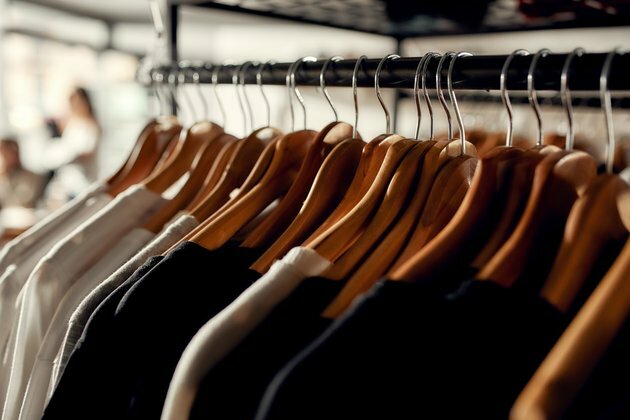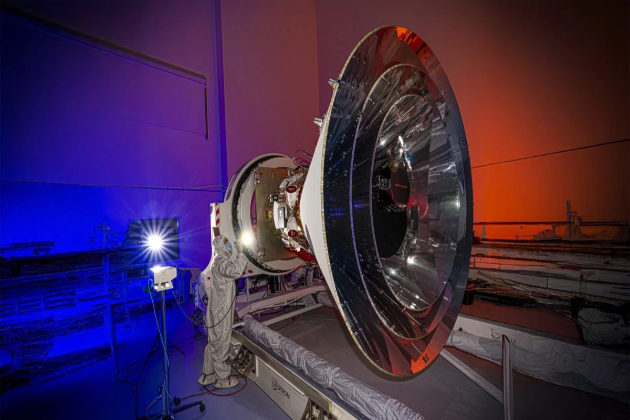Fashion industry's environmental impact is largely unknown - here's why
The Conversation
15 Sep 2023, 00:09 GMT+10

How do the clothes you buy wear out the natural world? To take stock of the damage you have to account for the materials, water and energy that went into making a garment, and the greenhouse gas emissions, chemical pollutants and other byproducts associated with its disposal.
For example polyester, a kind of plastic widely used in T-shirts, is made from oil - a fossil fuel. If you throw it out it degrades slowly, and chemicals from its dyes and surface treatments leach into the soil.
The UK consistently buys more garments than any other European country, spending more than Pound 45 billion (US$56 billion) annually. Fast fashion, an industry trend which involves getting cheap reproductions of catwalk designs out to a mass market as quickly as possible, encourages this buying frenzy.
Much of fast fashion is known to depend on sweatshop labour and polluting factories. But alongside the demand for ever faster fashion at low prices, there is a growing awareness among consumers that something has to change.
Some firms have caught on: many brands now report their environmental footprint and have disclosed their intention to shrink it.
But how trustworthy are these assessments? My research uncovers how the fashion industry collates, analyses and assesses environmental impact data. Unfortunately, as a result of inaccurate and unreliable methods, among other issues, the true cost of fast fashion remains largely unknown.
The hidden price tag
A multitude of metrics, certification schemes and labels mark the environmental consequences of making and selling clothing. Brands have been accused of greenwashing due to the poor quality of information used in some of them.
One common product-labelling tool within the industry was the Higg Materials Sustainability Index. Introduced in 2011, the Higg Index was a rating system used by several large brands and retailers to determine and report the global warming impact and water consumption of different products, among other environmental measures.
The approach adopted by the index was challenged by the Norwegian Consumer Authority for limiting its assessment to only certain phases of a product's lifecycle, such as the sourcing of materials. It was criticised for overlooking pollutants such as microfibres, which are released from textiles during manufacture, wear and washing. As a result, the index was suspended in June 2022.
Since then, further issues have come to light. These include:
- unreliable data - measures often rely on brands self-reporting without their information being verified by an impartial third party
- vested interests - many tools and indices are funded, or part funded, by organisations that could benefit from more positive reporting
- tunnel vision - existing methods tend to focus on only one environmental impact, such as water use or carbon emissions, while the relationship between these factors is overlooked
- paywalls - many tools require brands to pay into them. This can effectively exclude smaller businesses and limit the tool's coverage
- lack of standards - there is no official baseline to determine acceptable thresholds of environmental footprint of any one product.
Without reliable and accurate assessments of a product's environmental impact, consumers are left in the dark. For example, a common misconception is that cotton, being a natural fibre, is better for the environment than synthetic materials such as acrylic and elastane.
But cotton requires vast quantities of water to grow, harvest and process. A standard cotton t-shirt, for example, requires 2,500 litres while a pair of jeans consumes 7,600 litres.
One fibre is not necessarily better than the other. Rather, every material and manufacturing process affects the natural world in one form or another. With such misconceptions rife, it's difficult for consumers to make sound comparisons. That's why accurate measures are desperately needed.
The true cost of fashion
The complexity of fashion's global supply chain, which spans thousands of miles from fields to shop floors, makes accurate measurements exceptionally difficult. Capturing an accurate picture of the industry's environmental footprint will rely on a certain level of transparency across the industry. It will also require multiple sectors - including production, manufacturing and retail - working collectively towards a common goal.
An acceptable definition for "sustainable", informed by standards and baselines, could empower consumers to make more informed decisions about their purchases. With Gen-Z labelled the sustainable generation, it is time for fashion to reform.
Don't have time to read about climate change as much as you'd like?
Get a weekly roundup in your inbox instead. Every Wednesday, The Conversation's environment editor writes Imagine, a short email that goes a little deeper into just one climate issue. Join the 20,000+ readers who've subscribed so far.
Author: Alana James - Assistant Professor in Fashion, Northumbria University, Newcastle 
 Share
Share
 Tweet
Tweet
 Share
Share
 Flip
Flip
 Email
Email
Watch latest videos
Subscribe and Follow
Get a daily dose of Iraq Sun news through our daily email, its complimentary and keeps you fully up to date with world and business news as well.
News RELEASES
Publish news of your business, community or sports group, personnel appointments, major event and more by submitting a news release to Iraq Sun.
More InformationInternational
SectionTrump administration pushes food firms to drop artificial dyes
NEW YORK CITY, New York: The Trump administration is pressuring major food companies to remove artificial dyes from their products,...
Lawmakers debate military expansion amid European security fears
BERLIN, Germany: German Lawmakers are debating whether to loosen the country's strict borrowing rules to fund military expansion. ...
Trump to end U.S. government international news services
The Voice of America may not live up to its ambitious name for much longer. Michael Abramowitz, the director of VOA, said in a Facebook...
Dozens dead as U.S. launches large scale offensive in Yemen
WASHINGTON, DC - U.S. President Donald Trump has joined Israel's war on Yemen's Houthis, days after the group said it would resume...
SPHEREx telescope to create a three-dimensional map of the cosmos
LOMPOC, California: NASA launched a new telescope into space this week to study the origins of the universe and search for hidden water...
Texas, New Mexico report 28 new measles cases in five days
AUSTIN/SANTA FE: Texas/New Mexico have reported 28 new measles cases in the past five days, bringing the total to 256 since the outbreak...
Arab
SectionDozens dead as U.S. launches large scale offensive in Yemen
WASHINGTON, DC - U.S. President Donald Trump has joined Israel's war on Yemen's Houthis, days after the group said it would resume...
Travel to and from Israel to be boosted by terminal reopening
The principal terminal, Terminal 1, at Israel's largest airport will reopen at the end of this month, having largely been closed since...
UAE Ambassador presents credentials to President of Ghana
ACCRA, 17th March, 2025 (WAM) -- Dr. Abdulla Murad Al Mandoos presented his credentials as UAE Ambassador to the Republic of Ghana,...
Saeed bin Maktoum crowns junior Padel champions at Nad Al Sheba Sports Tournament
DUBAI, 17th March, 2025 (WAM) -- Sheikh Saeed bin Maktoum bin Juma Al Maktoum, Chairman of the UAE Padel Federation, crowned the winners...
UAE Cybersecurity Council detects 1,200 cases of internet begging in 2024
ABU DHABI, 17th March, 2025 (WAM) -- The UAE Cybersecurity Council has identified more than 1,200 cases of internet begging in 2024,...
Netanyahu seeks to oust security chief
The Israeli prime minister has cited a persistent lack of confidence in the Shin Bet chief as he moves to dismiss him ...












